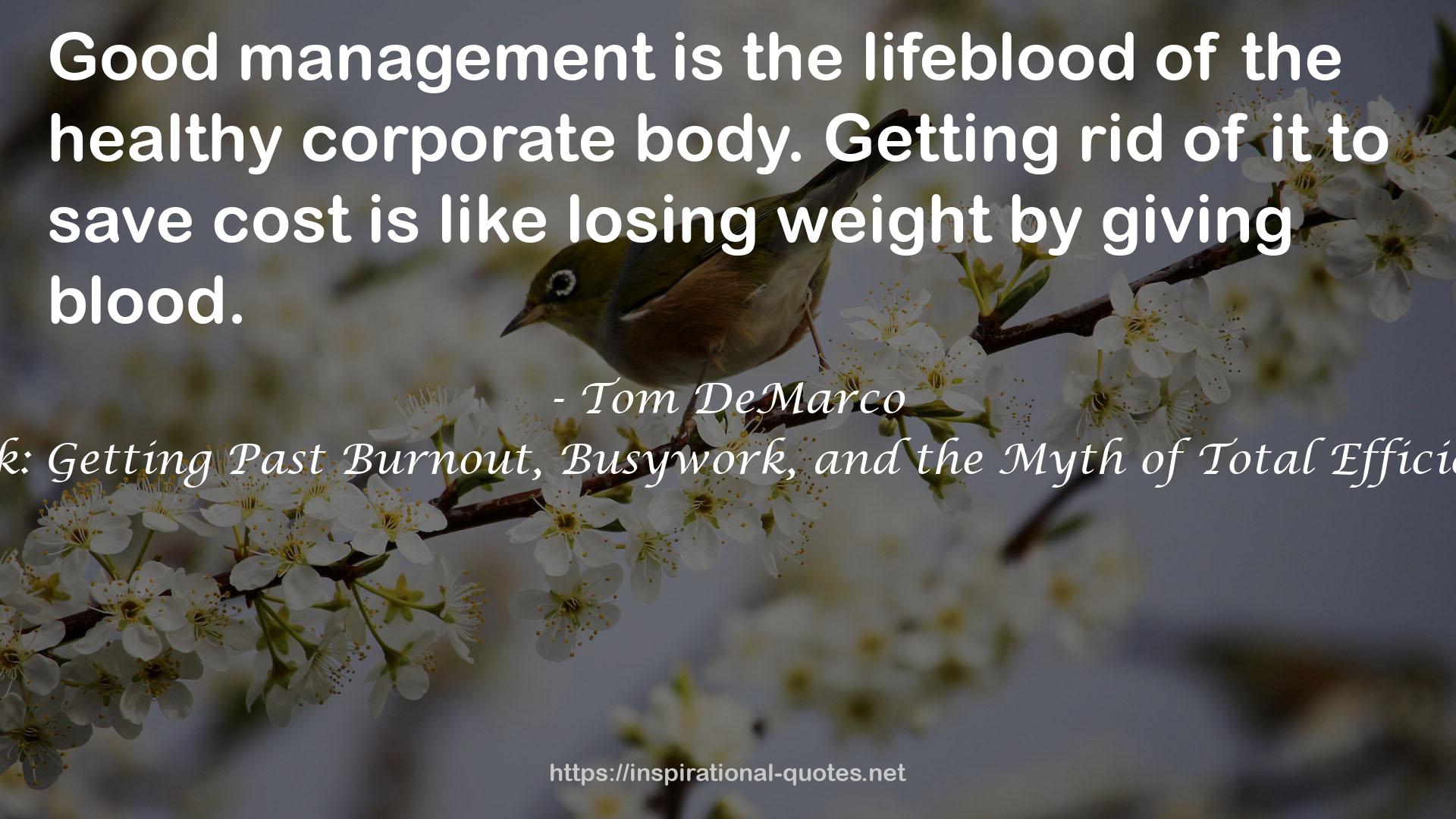7
" You're efficient when you do something with minimum waste. & you're effective when you're doing the right something."
"...the degree of freedom required to effect change. Slack is the natural enemy of efficiency & vise versa."
"...slack represents operational capacity sacrificed in the interest of long term health."
"Imagine one of those puzzle games consisting of 8 numbered tiles in a box, with one empty space, so you can slide them around one at a time. The objective is to shuffle the tiles into numerical order. That empty space is the equivalent of slack. If you remove it, the game is technically more efficient, but something is lost. Without the open space, there is no further possibility of moving tiles at all. The layout is optimal as it is, but if time proves otherwise, there is no way to change it."
"Having a little bit of wiggle room allows us to respond to changing circumstances, to experiment, & to do things that might not work."
→ time, money, people on job, or even expectations
→ Not having slack is taxing. Scarcity weighs on our minds and uses up energy that could go toward doing the task at hand better. It amplifies the impact of failures & unintended consequences.
→ Slack allows us to handle the inevitable shocks & surprise of life.
→ Slack is the time when reinvention happens. It is time when you are not 100% busy doing the operational business of your firm. Slack is the time when you are 0% busy. Slack at all levels is necessary to make the organization work effectively & to grow. It is the lubricant of change. Good companies excel in creative use of slack. & bad ones only obsess about removing it.
→ Only when we are 0% busy can we step back & look at the bigger picture of what we're doing. Slack allows room for that...to think ahead.
→ We are more productive when we don't try to be productive all the time.
→ Being comfortable with sometimes being 0% busy means we think about whether we're doing the right thing → Effectiveness
→ "The secret to top performance is to always be a little underemployed; you waste years by not being able to waste hours. Those seemingly wasted hours are necessary to figure out if you're headed in the right direction. "
― Tom DeMarco , Slack: Getting Past Burnout, Busywork, and the Myth of Total Efficiency
15
" It’s a rare company I visit these days that doesn’t have a Dilbert cartoon posted somewhere. I guess the message of these cartoons is “Our company is in some ways like Dilbert’s company, ” or, even worse, “My boss is in some ways like Dilbert’s boss.” When I encounter these cartoons, I always want to find the person who posted them and ask, “Yes, but are you like Dilbert?” Are you keeping your head down? Are you accepting senseless direction when it’s offered? Are you letting the bureaucracy dominate at the expense of the real goals? If so, I’d like to tell that person, then you’re part of the problem. At the risk of being a total killjoy, I propose that you look at the next Dilbert cartoon that falls under your eye in a totally different way. I propose that you ask yourself about Dilbert’s role in whatever corporate nonsense is the butt of the joke. Ask yourself, How should Dilbert have responded? (The real Dilbert, of course, never responds at all.) How could Dilbert have made this funny situation distinctly nonfunny? What could he have done to put an end to such absurdities? There is always an obvious answer. Sometimes the action is one that would get Dilbert fired. It’s easy (and fair) to blame lousy management on lousy managers. But it’s not enough. It’s also necessary to blame the people who allow themselves to be managed so badly. At least partly at fault for every bad management move is some gutless Dilbert who allows it to happen. "
― Tom DeMarco , Slack: Getting Past Burnout, Busywork, and the Myth of Total Efficiency

